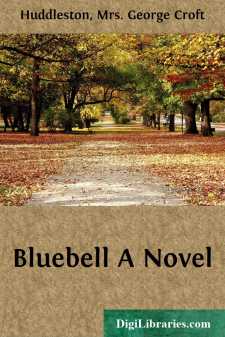Categories
- Antiques & Collectibles 13
- Architecture 36
- Art 48
- Bibles 22
- Biography & Autobiography 813
- Body, Mind & Spirit 141
- Business & Economics 28
- Children's Books 12
- Children's Fiction 9
- Computers 4
- Cooking 94
- Crafts & Hobbies 4
- Drama 346
- Education 46
- Family & Relationships 57
- Fiction 11826
- Games 19
- Gardening 17
- Health & Fitness 34
- History 1377
- House & Home 1
- Humor 147
- Juvenile Fiction 1873
- Juvenile Nonfiction 202
- Language Arts & Disciplines 88
- Law 16
- Literary Collections 686
- Literary Criticism 179
- Mathematics 13
- Medical 41
- Music 40
- Nature 179
- Non-Classifiable 1768
- Performing Arts 7
- Periodicals 1453
- Philosophy 64
- Photography 2
- Poetry 896
- Political Science 203
- Psychology 42
- Reference 154
- Religion 513
- Science 126
- Self-Help 83
- Social Science 81
- Sports & Recreation 34
- Study Aids 3
- Technology & Engineering 59
- Transportation 23
- Travel 463
- True Crime 29
Bluebell A Novel
Categories:
Description:
Excerpt
SWEET SEVENTEEN.
I see her now—the vision fair,Of candour, innocence, and truth,
Stand tiptoe on the verge of air,
'Twixt childhood and unstable youth.
It was the "fall" in Canada, and the leaves were dying royally in purple, crimson and gold. On the edge of a common, skirting a well-known city of Ontario, stood a small, rough-cast cottage, behind which the sun was setting with a red promise of frost, his flaming tints repeated in the fervid hue of the Virginian creeper that clothed it.
This modest tenement was the retreat of three unprotected females, two of whom were seated in silent occupation close to a black stove, which imparted heat, but denied cheerfulness. The elder was grey and tintless as her life,—harsh wisdom wrung from sad experience ever on lips thin and tight, as though from habitually repressing every desire. The younger, a widow, was scarcely passed middle age, small of stature, but wizened beyond her years by privation and sorrow.
A smell of coal-oil, that most unbearable of odours, pervaded the interior of the cottage, revealing that the general servant below in lighting the lamp had, as usual, upset some, and was retaining the aroma by smearing it off with her apron.
Presently a quick, light step tripped over the wooden side-walk, a shadow darkened the window, and a vision of youth and freshness burst into the dingy little parlour.
A rather tall, full-formed young Hebe was Theodora Leigh, of that pure pink and white complexion that goes farther to make a beauty than even regularity of feature; her long, sleepy eyes were just the shade of the wild hyacinth; indeed, her English father always called her "Bluebell," after a flower that does not grow on Transatlantic soil.
But they were Irish-eyes, "put in with a dirty finger," and varying with every mood. Gooseberry eyes may disguise more soul, but they get no credit for it. Humour seemed to dance in that soft, blue fire; poetry dreamed in their clear depths; love—but that we have not come to yet; they were more eloquent than her tongue, for she was neither witty nor wise, only rich in the exuberant life of seventeen, and as expectant of good will and innocent of knowledge of the world as a retriever puppy.
Apparently, Miss Bluebell was not in the suavest of humours, for she flung her hat on to one crazy chair, and herself on another, with a vehemence that caused a sensible concussion.
"My dear, how brusque you are," said Mrs. Leigh, plaintively.
"So provoking," muttered Bluebell.
"What's gone wrong with the child now?" said Miss Opie, the elder proprietress of the domicile.
"Why," said Bluebell, "I met the Rollestons, and they asked: me to their picnic at the Humber on Friday; but how can I go? Look here!" and she pointed to a pair of boots evidently requiring patching. "Oh, mother! could you manage another pair now? Miss Scrag has sent home my new 'waist,' and I can do up my hat, but these buckets are only fit for the dusthole."
Mrs. Leigh sighed,—"A new pair, with side-springs, would cost three dollars....


